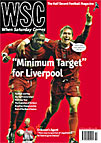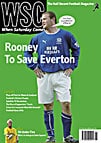 The number of Australian players in Britain has turned from trickle to flood, fuelled by an army of agents. Neil Forsyth traces this all back to a very English wheeler-dealer
The number of Australian players in Britain has turned from trickle to flood, fuelled by an army of agents. Neil Forsyth traces this all back to a very English wheeler-dealer
Ten years ago it was Scandinavians. Every United Kingdom team, it seemed, had one. Cheap, professional and highly adaptable to the British playing style (apart from Tomas Brolin, on all three counts) they streamed across the North Sea. It wasn’t a coincidental occurrence, a sudden outbreak of itchy feet. Rather, it was down to the emergence in those countries of an ambitious and inventive breed of a relatively new football phenomenon, the modern agent. Well educated, fluent in English and with a largely untapped resource to market, the fledgling Scandinavian agents found the UK a fertile market. One, Rune Hauge, brought a novel business approach to his dealings with then Arsenal manager George Graham, leading to the Scotsman’s sacking.
